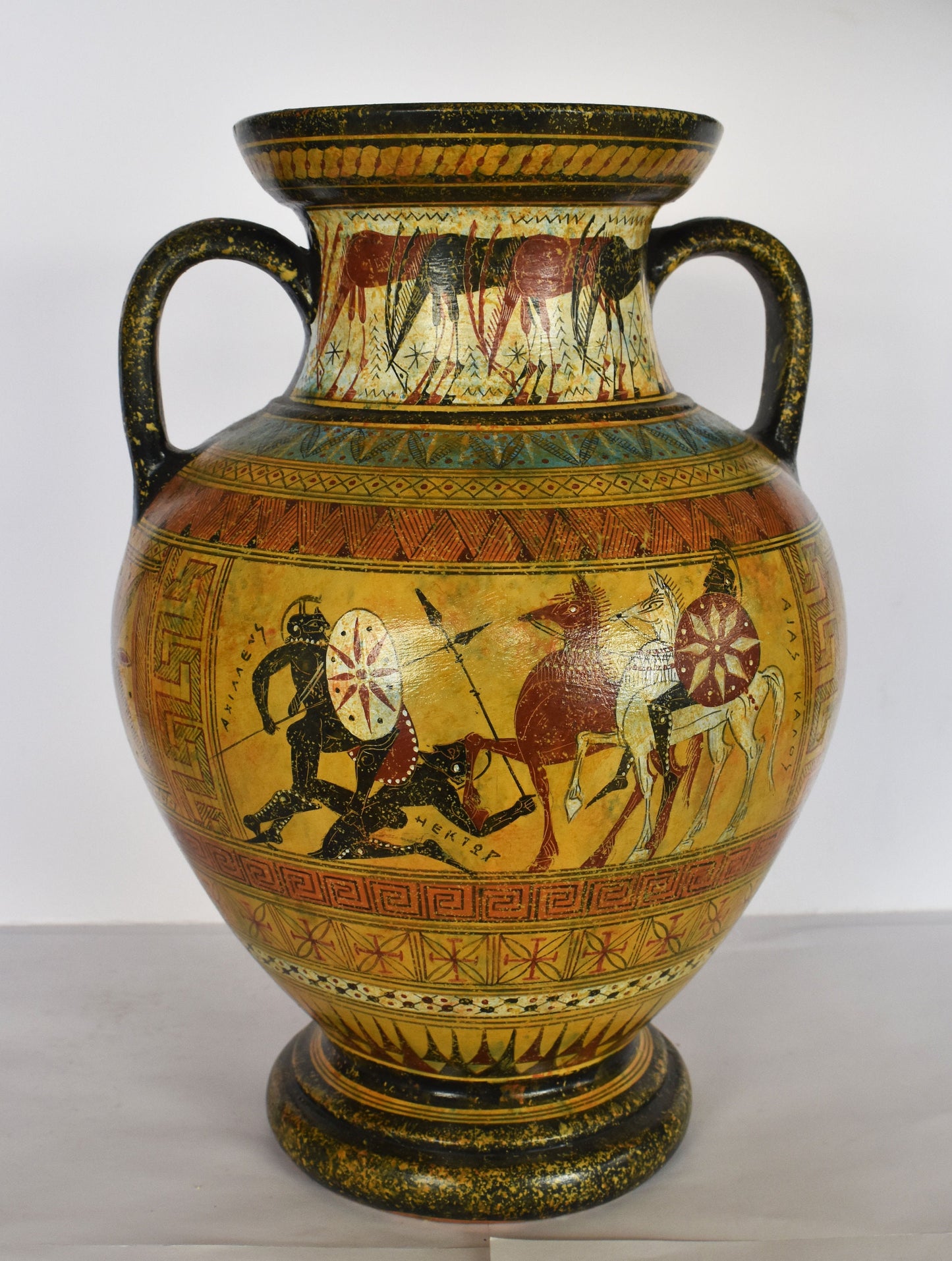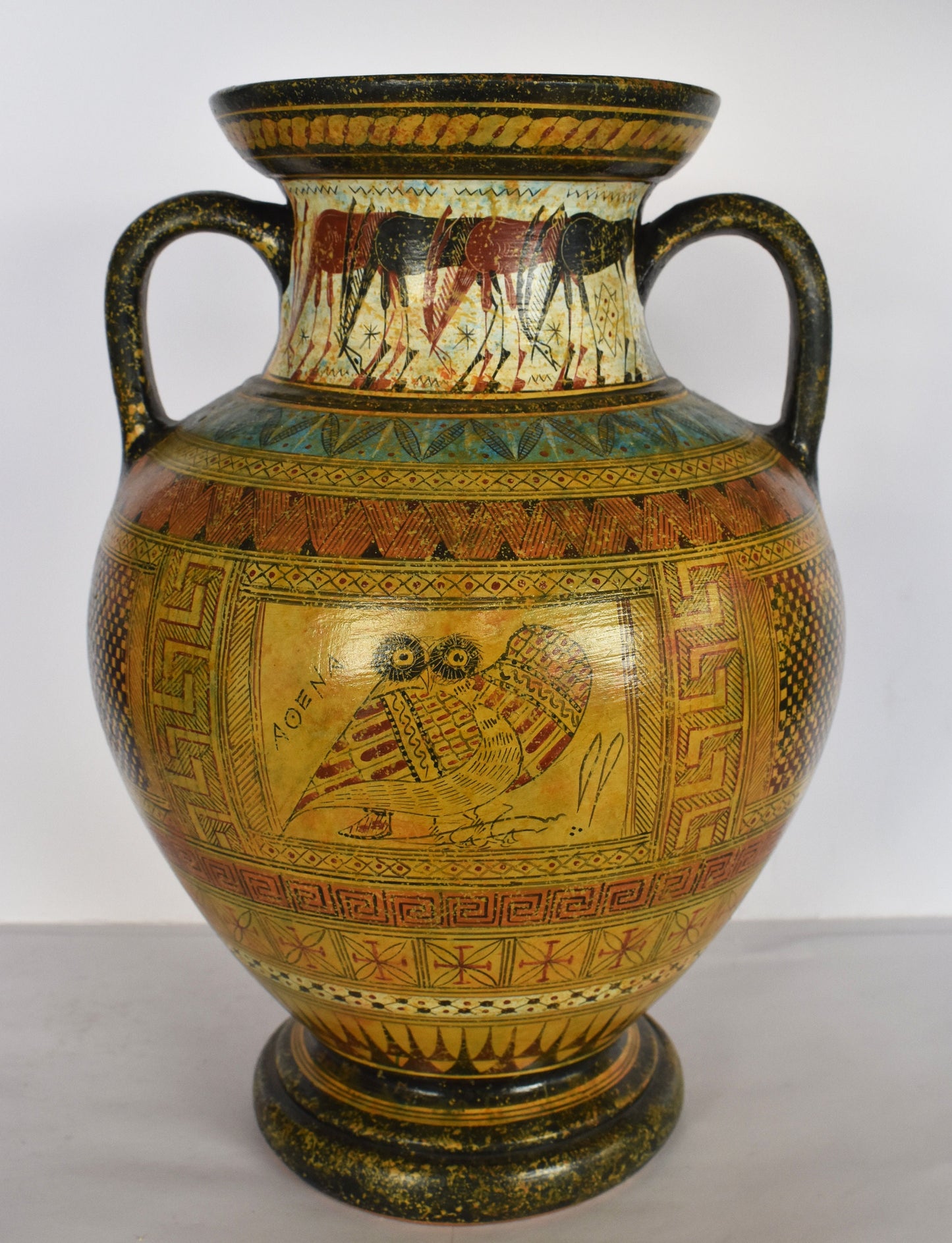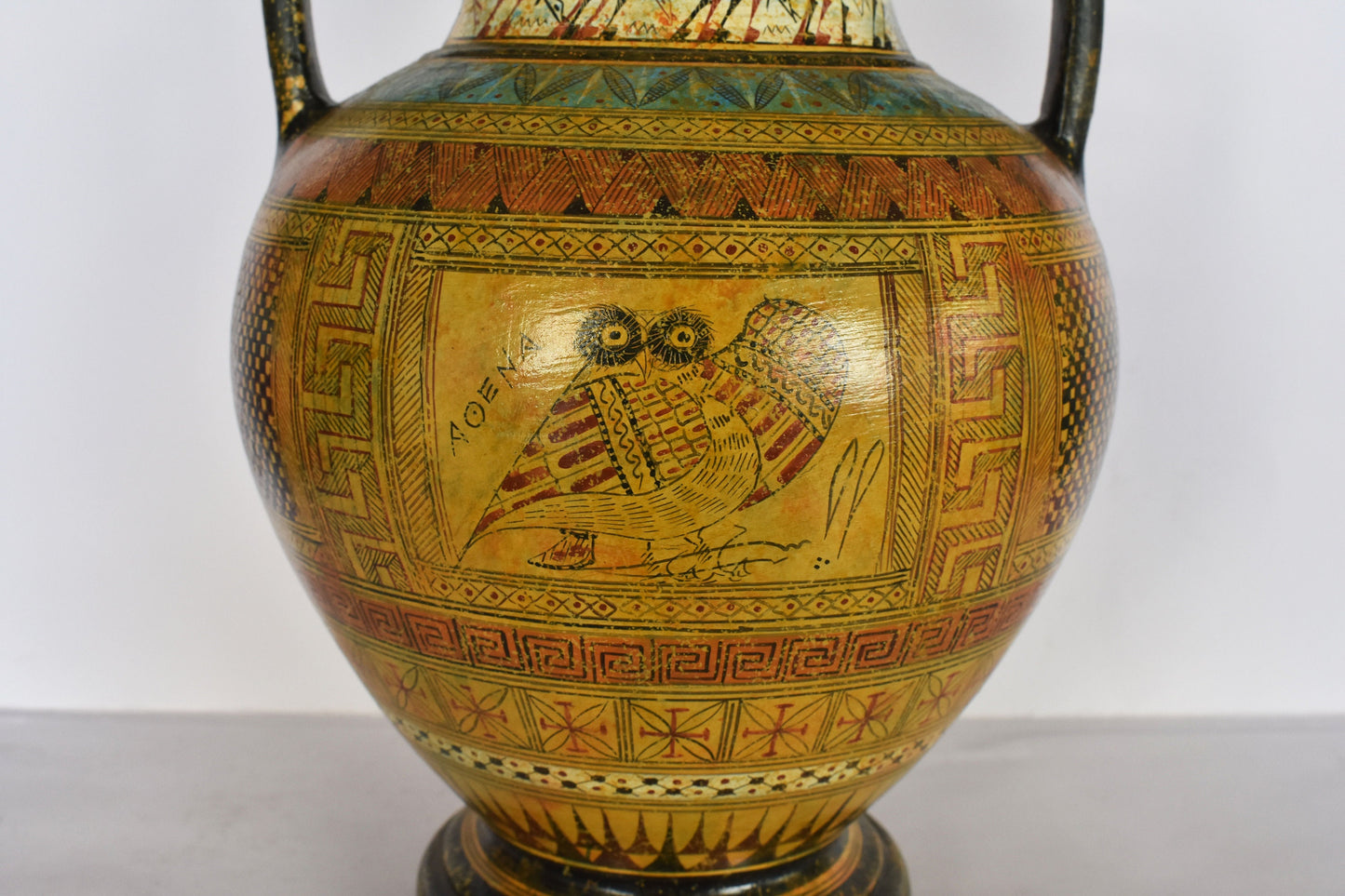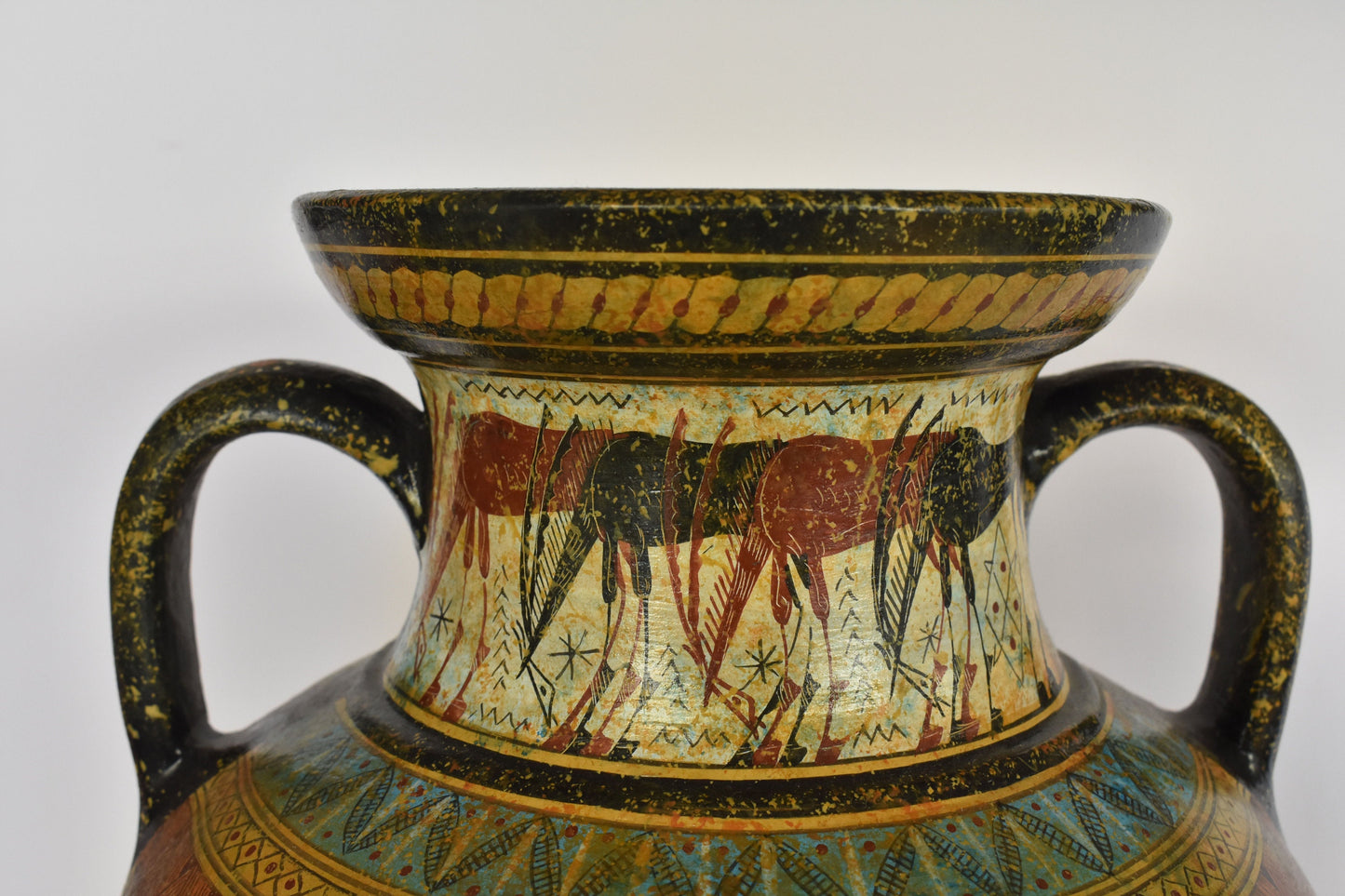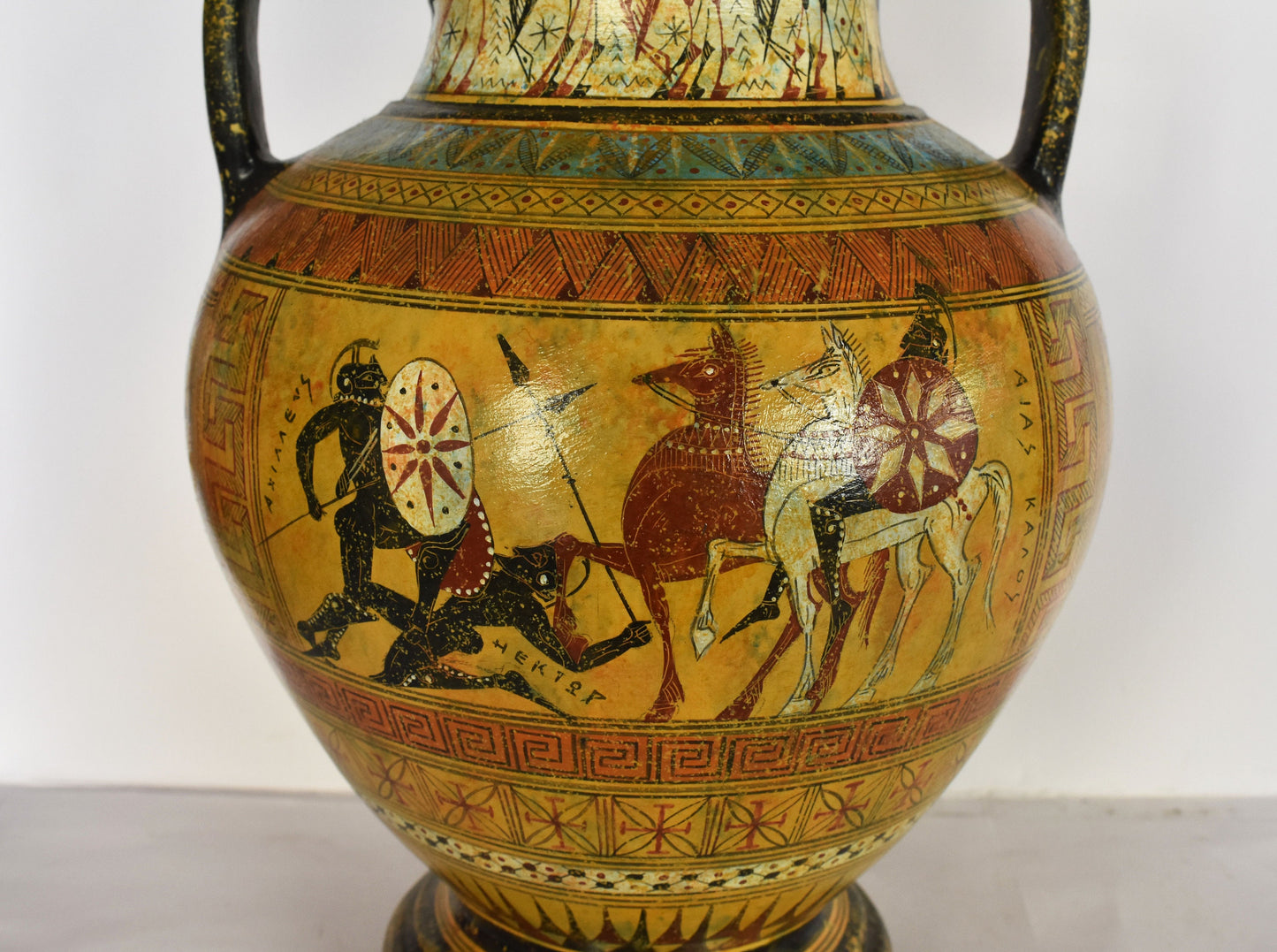Gallery Demeter
Achilles Ajax Hector - Trojan War Theme - Athenian Owl - Animals - Meander and Rosette Design - Ceramic Vase
Achilles Ajax Hector - Trojan War Theme - Athenian Owl - Animals - Meander and Rosette Design - Ceramic Vase
Regular price
€349,90 EUR
Regular price
Sale price
€349,90 EUR
Unit price
per
Tax included.
Shipping calculated at checkout.
Couldn't load pickup availability
Item Specifics
Condition: New, Handmade in Greece.
Material: Clay
Height: 29 cm - 11,4 inches
Width: 20 cm - 7,9 inches
Length: 20 cm - 7,9 inches
Weight: 2300 g
Two of Hector's famous battles are with Ajax and Achilles.
Ajax was a Greek hero and grandson of Zeus, whose hand to hand battle with Hector lasted most of the day. Hector breaks into the Mycenaean camp burning all the ships, the only way he feels he can defeat the Greeks, Ajax is said to have leapt from ship to ship brandishing a spear and holds off Hectors army single-handedly.
A fight between the two ensues, and at first Ajax is the stronger and wounds Hector with his spear but he knocks him down with a large stone. Hector fights on courageously until Zeus intervenes calling the battle a draw ordering both men to exchanging gifts. Ajax is said to have given Hector a purple sash and Hector giving Ajax a sharp sword.
The more famous fight with the mighty Achilles see's the end of Hector whilst avenging the death of his friend Patroclus. Achilles sets out to meet Hector and kill him. Both men were hero worshiped by the men of their armies, they were young and strong and both have a cause, Achilles, of course, was revenge and Hectors was the fate of the city of Troy. After the fight is over Achilles is the victor, from the city walls Hector's father can only watch as Achilles binds Hector by his feet to his chariot and drags it three times around the city walls. King Priam pleads for the release of his sons body to which Achilles agrees.
In ancient Greece, owls were a sign of the goddess Athena's influence, providing wisdom in life and power on the battlefield. Looking for signs of hope, soldiers would scan the horizon for a promising glimpse of an owl.
Meander is also known as Greek key or Greek fret. Meander was the most important symbol in Ancient Greece, symbolizing infinity or the eternal flow of things. ... The twisting pattern symbolizes as well the bonds of friendship, of love and has also been thought to mimic the serpent, symbol of guardianship and healing.
The rosette/flower/star has been linked by H.S. Smith to the concept of 'divine' kingship and to the Sumerian and especially Elamite symbolism. It is believed the rosette was a symbol for kingly authority, or possibly the king's power of life or death over subject peoples.
